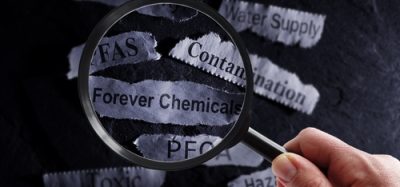EU-wide investigation finds 428 unauthorised novel foods sold online
- Like
- Digg
- Del
- Tumblr
- VKontakte
- Buffer
- Love This
- Odnoklassniki
- Meneame
- Blogger
- Amazon
- Yahoo Mail
- Gmail
- AOL
- Newsvine
- HackerNews
- Evernote
- MySpace
- Mail.ru
- Viadeo
- Line
- Comments
- Yummly
- SMS
- Viber
- Telegram
- Subscribe
- Skype
- Facebook Messenger
- Kakao
- LiveJournal
- Yammer
- Edgar
- Fintel
- Mix
- Instapaper
- Copy Link
Posted: 23 February 2018 | George Smith (New Food) | No comments yet
The results of a month-long push by the European Commission to encourage EU member states to become more involved in E-commerce has revealed 428 incidents of unauthorised novel foods sold online in Europe.


More than 400 unauthorised novel foods were found marketed online in Europe after member states’ food control authorities conducted a month-long investigation.
The 25 member states as well as Norway and Switzerland took part in the first EU coordinated control plan on online offered food products orchestrated by the European Commission.
On a voluntary basis, they were asked to search the internet for websites which offered in their respective language certain food products for sale in their country. The products they were asked to look out for were:
- Agmantine (4-aminobutyl) guanidine sulfate – a compound often used as a workout supplement
- Acacia rigidula – a weight loss dietary supplement
- Epimedium grandiflorum – marketed as a male aphrodisiac
- Hoodia gordonii – claimed to be an appetite suppressant
In addition, authorities were asked to search for websites which offer food supplements with misleading statements and more specifically, to search for offers of food supplements with information that attributes to them the property of preventing, treating or curing bone and joint diseases or refer to such properties with disease-related expressions, pictures or symbols.
The report published after the investigation said authorities checked nearly 1100 websites and found 428 offers of unauthorised novel foods and 351 food supplements with medicinal claims which add to 779 offers for sale of products which were clearly non-compliant with EU legislation.
Dr Pamela Byrne, Chief Executive, Food Safety Authority of Ireland (FSAI), one of the participating authorities, commented on the report findings: “The high number of non-compliant offers is a clear sign that e-commerce control across Europe needs to be strengthened. Whether purchasing from a physical store or online, consumers have the right to buy safe food which does not mislead.
“Furthermore, businesses selling food online must abide by the same rules as their bricks and mortar counterparts. To strengthen controls in Ireland, the FSAI has established a cross-agency working group focusing on online sales of food and last year published information for food businesses selling or advertising food online.
“I strongly encourage all food businesses to take the time to read this information and revise their online offers, as necessary.
“Inspectors are putting more focus on reviewing the online activity of food businesses. We continue to cooperate with our colleagues in other Member States regarding online sales of non-compliant food via the European Commission and also fully participate in working groups at EU level.”
Related topics
Food Safety, Health & Nutrition, Packaging & Labelling, Supply chain, The consumer
Related organisations
European Commission, Food Safety Authority of Ireland (FSAI)









